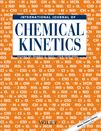 Thomson Reuters’ online peer review system ScholarOne is having quite a year.
Thomson Reuters’ online peer review system ScholarOne is having quite a year.
This summer, a scientist exploited basic security flaws in how the system accepts author suggestions for peer reviewers to review a whole pile of his own manuscripts, ultimately resulting in the retraction of 60 papers and the resignation of the Taiwan minister of education.
Now, another journal that uses the system, Wiley’s International Journal of Chemical Kinetics, has retracted a paper because the authors provided their own peer reviewers and “the identity of the peer reviewers could subsequently not be verified.”
We asked editor Craig A. Taatjes if he was concerned the authors had conducted their own peer review. His response is reflective of many of the breaches we’ve seen so far for these online systems: Continue reading It’s happened again: Journal “cannot rule out” possibility author did his own peer review
 A trio of skin specialists in Egypt has lost a 2009 paper in the Indian Journal of Dermatology for duplication. And the journal wasn’t happy about it.
A trio of skin specialists in Egypt has lost a 2009 paper in the Indian Journal of Dermatology for duplication. And the journal wasn’t happy about it.






